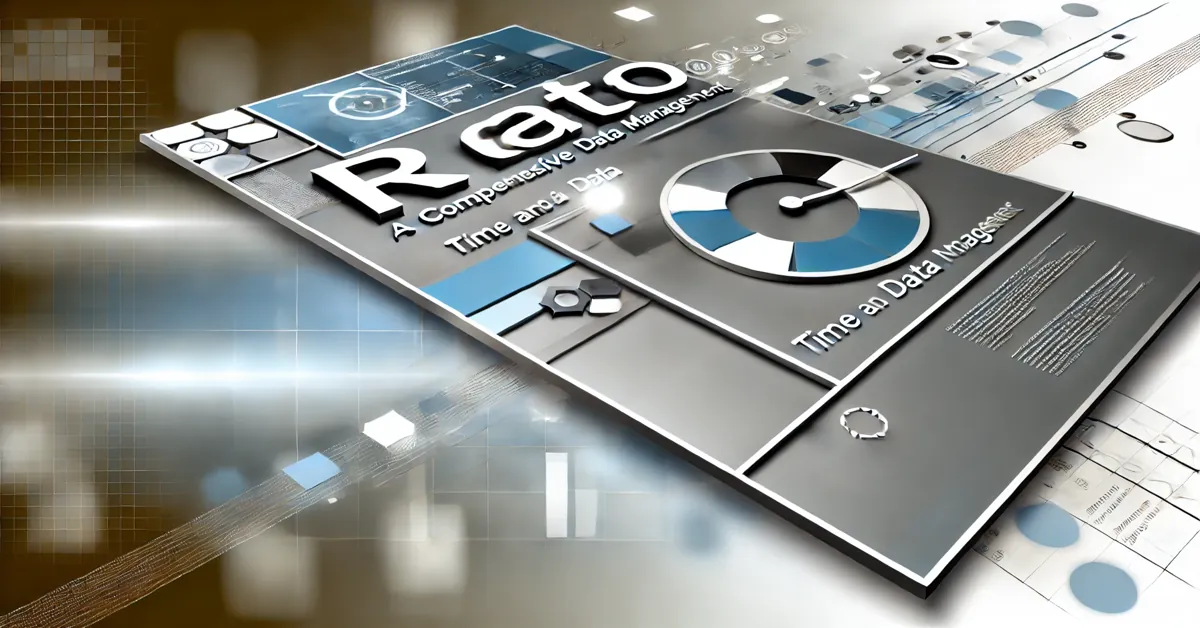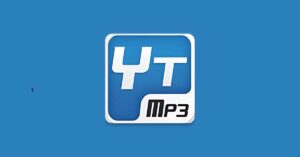In an age where time is a precious resource and data is the new currency, the ability to manage both effectively is critical to success. The framework of Rdatao has emerged as a solution for individuals and businesses looking to streamline their workflows and make smarter decisions based on real-time analysis. Rdatao stands at the intersection of time management and data integration, offering a comprehensive system that prioritizes tasks, organizes data from multiple sources, and enhances decision-making processes through efficient, real-time analytics. The result is improved efficiency, reduced stress, and higher productivity across the board.
The concept behind it is straightforward: by better managing both time and data, individuals and businesses can avoid the pitfalls of disorganization, missed deadlines, and lost opportunities. This article will explore the origins, benefits, and practical applications of the Rdatao framework, emphasizing its role in improving time management and data handling while discussing the latent semantic indexing (LSI) keywords related to Rdatao to ensure an optimized, keyword-stuffed overview.
The Origins and Evolution of Rdatao
Rdatao, a relatively new framework in the world of productivity tools, was designed to address two critical challenges facing modern businesses and individuals: time management and data integration. As the global economy becomes more interconnected and information flows increase, the need to handle data efficiently and effectively has become paramount. Traditional time management tools and data analytics platforms are often siloed, leading to inefficiencies. It seeks to bridge this gap by providing a unified system that allows users to manage their time while simultaneously integrating data from multiple sources.
At its core, Rdatao’s time management capabilities involve prioritizing tasks based on impact and urgency. By analyzing how time is currently spent, the Rdatao framework helps identify areas where inefficiencies exist—whether it’s juggling too many responsibilities at once or dealing with disorganized data systems. Once these inefficiencies are identified, Rdatao applies its prioritization techniques to ensure that users focus on high-impact activities, thereby increasing overall productivity.
On the other hand, Rdatao’s data integration feature allows users to combine data from various sources into one unified system. This is critical for businesses dealing with large volumes of data, which can often become overwhelming if not properly managed. It offers a solution by streamlining the data collection process, organizing it into manageable sections, and providing real-time analysis for better decision-making.
The Importance of Time Management in the Rdatao Framework
Effective time management is an essential part of personal and professional success, yet many individuals struggle to manage their time properly. A common problem is the lack of prioritization—many people find themselves bogged down with low-priority tasks that consume too much time and energy, leading to missed deadlines, unfinished tasks, and, ultimately, burnout.
The Rdatao framework addresses this issue by employing a methodical approach to time management. Users are encouraged to begin by assessing their current time management practices and identifying key areas of inefficiency. For example, are there specific tasks that are consistently overlooked or delayed? Are there projects that feel overwhelming due to their scope? By taking stock of these areas, users can begin to implement it’s prioritization techniques.
It prioritizes tasks based on their importance and urgency. High-impact tasks are placed at the top of the list, ensuring that users spend their time on activities that will yield the greatest return. This system can be applied to both personal to-do lists and complex business projects, helping users streamline their workflows and increase the number of completed tasks in less time.
By prioritizing tasks effectively, it ensures that time is managed more efficiently, reducing stress and avoiding the overwhelming feeling that often accompanies poorly organized workloads. This not only increases productivity but also improves overall well-being.
The Role of Data Integration in Rdatao
While time management is one half of the Rdatao framework, data integration is the other critical component. In today’s data-driven world, businesses are inundated with information from multiple sources. Whether it’s customer data, financial reports, or market trends, the ability to collect, analyze, and act on data in real-time is essential for making informed decisions.
The problem many businesses face is that their data is often fragmented. It might be stored in multiple databases, spreadsheets, or software systems, which makes it difficult to access and analyze effectively. This fragmentation can lead to poor decision-making, as incomplete or incorrect data is used as the basis for critical business decisions.
It solves this issue by providing a platform where all data can be integrated into one unified system. By collecting data from multiple sources—whether it’s internal databases, external APIs, or social media analytics—Rdatao ensures that businesses have access to all the information they need in one place. This eliminates the need to switch between multiple platforms, saving time and reducing the risk of errors.
Moreover, it offers real-time analysis, allowing businesses to monitor key metrics and make informed decisions as situations evolve. For example, if a company is tracking sales data and notices a sudden drop in revenue, they can use it’s real-time analytics to identify the cause—whether it’s a marketing issue, a product problem, or a change in customer behavior—and take immediate action to resolve it.
Enhancing Decision-Making with Rdatao
The real power of Rdatao lies in its ability to enhance decision-making through the combination of time management and data integration. By providing a clear view of both time and data, it enables users to make more informed choices about how to allocate resources and prioritize tasks.
In business, this can translate to improved financial outcomes. For example, a company that uses it to streamline its workflow can focus on high-impact projects, reduce wasted time, and allocate its resources more effectively. This leads to higher profitability and a more competitive edge in the marketplace.
On a personal level, it can help individuals better manage their time, allowing them to focus on what truly matters. Whether it’s completing important tasks at work, spending more time with family, or pursuing personal interests, it ensures that users have the tools they need to make decisions that align with their goals.
Practical Applications of Rdatao for Businesses
One of the key benefits of Rdatao is its flexibility. The framework can be applied to a wide range of industries and business models, making it a versatile tool for improving productivity and decision-making.
In the retail industry, for example, it can be used to manage inventory levels more effectively. By integrating sales data, supplier information, and customer demand trends into one system, retailers can use it’s real-time analytics to make informed decisions about which products to stock and when to reorder items. This minimizes the risk of overstocking or understocking, leading to better inventory management and higher profits.
In the healthcare sector, it can be used to improve patient care by integrating medical records, appointment schedules, and treatment plans into a single platform. This enables healthcare providers to have a complete view of a patient’s medical history and current needs, allowing for more personalized and effective treatment.
In the finance industry, Rdatao can be used to analyze market trends, monitor financial performance, and make data-driven investment decisions. By providing real-time insights into financial data, it helps businesses reduce risk and maximize returns.
Rdatao and Personal Productivity
While Rdatao is a powerful tool for businesses, it also has practical applications for personal productivity. Whether you’re a student, a freelancer, or a busy professional, Rdatao can help you manage your time more effectively and make better decisions about how to allocate your resources.
For example, a freelancer might use it to track their client projects, deadlines, and billing information in one place. By prioritizing high-value tasks and keeping track of important deadlines, Rdatao helps freelancers stay organized and meet their commitments.
A student might use Rdatao to manage their study schedule, track assignments, and analyze their academic performance over time. By identifying areas where they need to focus their efforts, Rdatao helps students improve their grades and achieve their academic goals.
Future Trends: The Role of AI in Rdatao
As the world continues to evolve, so too does the Rdatao framework. One of the most exciting developments in the field of time and data management is the integration of artificial intelligence (AI) into it’s system.
AI has the potential to revolutionize how we manage time and data by automating repetitive tasks, providing predictive analytics, and offering personalized recommendations. For example, it could use AI to analyze a user’s workflow and suggest ways to improve efficiency. If Rdatao notices that a particular task is consistently taking longer than expected, it might recommend strategies for completing the task more quickly or suggest alternative ways to achieve the same outcome.
In addition, AI-powered data analysis can provide deeper insights into trends and patterns that might not be immediately apparent to human users. This can be particularly useful in industries like finance or marketing, where data-driven decision-making is critical to success.
As AI continues to advance, we can expect to see even more sophisticated features added to the Rdatao framework, further enhancing its ability to improve time and data management.
Conclusion: The Future of Time and Data Management with Rdatao
Rdatao represents a significant advancement in how we manage both time and data in the modern world. By providing a comprehensive framework that prioritizes tasks, integrates data from multiple sources, and enhances decision-making through real-time analysis, Rdatao helps individuals and businesses improve efficiency and productivity seamlessly.
As technology continues to evolve, we can expect Rdatao to incorporate even more advanced features, such as AI-powered analytics and predictive insights, further solidifying its role as a leading tool for time and data management. For businesses and individuals alike, Rdatao offers a powerful solution for navigating the complexities of the modern world, ensuring that time is spent wisely and data is used effectively.
Whether you’re managing personal tasks, overseeing a business, or looking to improve decision-making, Rdatao provides the tools you need to stay organized, focused, and productive in an increasingly fast-paced and data-driven world.









